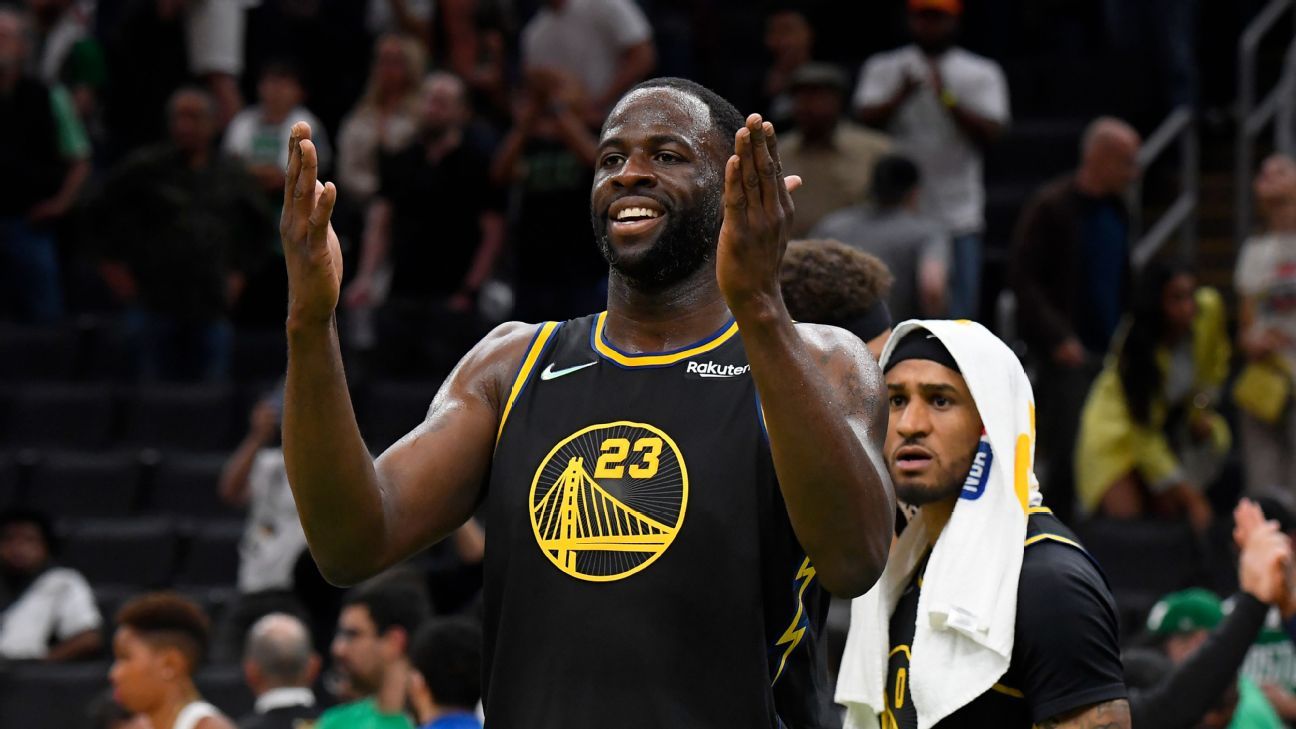Golden State Warriors All-Star forward Draymond Green called on NBA owners to hold a vote to terminate Robert Sarver’s position as owner of the Phoenix Suns.
“I’m asking that there be a vote,” Green said on “The Draymond Green Show” podcast, which was published Tuesday.
The league’s rules require a vote of three-quarters of the board of governors to remove an owner.
“It’s a little baffling to me that we’ll walk into the arena next year,” Green said on his podcast. “The Phoenix Suns will walk into the arena next year, he’ll sit on the sideline and we’ll just continue on playing. So the one thing that I am going to need is someone to explain to me why is it that it was OK to get rid of [LA Clippers owner Donald] Sterling, but it’s not possible to force Robert Sarver to sell after what we read?
“… I’m asking that there be a vote. If that’s the only way, then let’s see what those numbers are. Let’s see what they are.”
Sarver, who also is the majority owner of the WNBA’s Phoenix Mercury, was suspended one year and fined $10 million last week after an investigation found that he used the N-word at least five times “when recounting the statements of others.”
Sarver also was involved in “instances of inequitable conduct toward female employees,” including “sex-related comments” and inappropriate comments on employees’ appearances.
Silver banned Sterling for life, though a vote was never taken among NBA owners to terminate his position as owner. The Clippers were eventually sold.
Green said the league’s punishment for Sarver just wasn’t enough, and that players have been “thrown out of the league for less.”
“To get suspended for one year and fined $10 million, I mean, the only way you get suspended for one year and fined $10 million is if you are the owner of an asset and you can’t be fired,” Green said. “Because I think anyone else in the NBA who — and especially from a front-office standpoint, like maybe not a player, although we’ve seen players get thrown out of the league for less — would 1,000% be fired if half of the things that came out of the investigation into Robert Sarver came out about anyone else.”
The NBA commissioned an investigation in the wake of an ESPN story in November 2021 detailing allegations of racism and misogyny during Sarver’s 17 years as owner.
Sarver was found to have used the N-word at least five times “in repeating or purporting to repeat what a Black person said — four of those after being told by both Black and white subordinates that he should not use the word, even in repetition of another,” the NBA’s report stated.
“No. 1, if you use the N-word to re-describe something that someone said or [are] telling a story that someone has told you or [you are] using the word, because someone else did — stop it,” Green said. “That’s ridiculous. Because the level of comfort that you have to have to even use the word again does not validate or make it OK for Robert Sarver to use the N-word.”
Green questioned how someone like Sarver could lead an organization whose success “is pretty much built on the backs of African Americans.”
“When he returns next year, because it’s only a year, does everything just go back to normal?” Green asked. “Are those guys supposed to unsee everything that they just saw and heard? Are those guys supposed to feel comfortable with continuing to work with this guy?”
Green praised Silver for “the stands that they have taken over the years,” but he said the outcome of this investigation “kind of fell short of what it should be.”
“To think that someone like Robert Sarver that’s acting in that manner can continue to represent us? That’s bulls—,” Green said. “You can’t continue to represent way more people than yourself with those views, with speaking to people the way he did, with treating African Americans and women the way he has, that’s not OK.
“This guy gets to just come back in the fold as if he’s still representing us? And as if he’s a part of us? That can’t be so. Because for us, especially as African Americans, I’m uncomfortable, I’m very uncomfortable. And knowing that, in that position, you could just essentially do whatever you want, and because you own an asset, you can’t be punished?”
